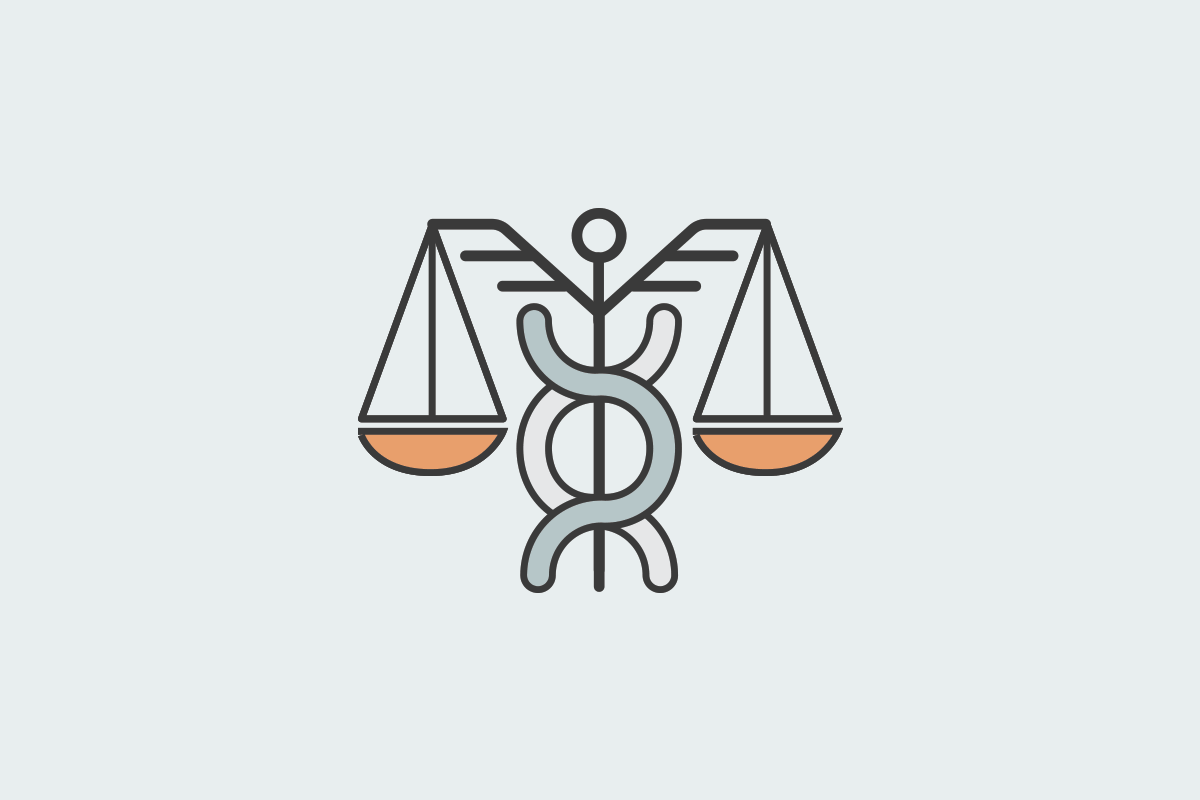During the COVID-19 pandemic, people spent a lot of time isolated and indoors, which helped foster an environment where some people now feel lonelier than ever. The result is a loss of social connectedness—the degree to which people feel the social connections and relationships in their lives to satisfy their wants and needs. When social…
Your Welcoa membership has expired.
Answers to Your Most Burning Employment Law Questions about COVID-19
The following article does NOT constitute legal advice and should not be used as such. It is for educational purposes only. Readers should retain legal counsel to obtain definitive answers.
The Coronavirus pandemic (COVID-19) has sent the United States into a tailspin. While the primary focus has been on containing the virus, employers have a lot of questions about how to handle employee absences and sickness. Luckily, the federal agencies that enforce some our most important employment laws have issued guidance for employers, including a number of helpful Frequently Asked Questions (FAQs). Here is a sampling of the FAQs, with a link to resources at the bottom of this blog post. Also at the end of the blog post is a brief explanation of the Constitutional question about the ability of governments to mandate quarantine and vaccination, an important question relating to individual rights vs. public safety.
As always, you should also check your local and state laws to ensure that you are fully complying with all the levels of law that affect the employee-employer relationship. The FAQs below address federal law questions only.
Americans with Disabilities Act (ADA)
With the ADA, it is important to note that when there is a “direct threat” (i.e., a risk of substantial harm to the health or safety of the individual or others that cannot be eliminated or reduced by reasonable accommodation), such as arguably when the World Health Organization has declared a pandemic (which it has), an employee is not protected by the nondiscrimination provisions of the ADA. 29 CFR § 1630.2(r). With that in mind, here are some common FAQs relating to the ADA:
Q1: May an ADA-covered employer send employees home if they display influenza-like symptoms during a pandemic?
A2: Yes. The CDC states that employees who become ill with symptoms of influenza-like illness at work during a pandemic should leave the workplace. Advising such workers to go home is not a disability-related action if the illness is akin to seasonal influenza or the 2009 spring/summer H1N1 virus. Additionally, the action would be permitted under the ADA if the illness were serious enough to pose a direct threat.
Q2: During a pandemic, how much information may an ADA-covered employer request from employees who report feeling ill at work or who call in sick?
A2: ADA-covered employers may ask such employees if they are experiencing influenza-like symptoms, such as fever or chills and a cough or sore throat. Employers must maintain all information about employee illness as a confidential medical record in compliance with the ADA.
If pandemic influenza is like seasonal influenza or spring/summer 2009 H1N1, these inquiries are not disability-related. If pandemic influenza becomes severe, the inquiries, even if disability-related, are justified by a reasonable belief based on objective evidence that the severe form of pandemic influenza poses a direct threat.
Q3: During a pandemic, may an ADA-covered employer ask employees who do not have influenza symptoms to disclose whether they have a medical condition that the CDC says could make them especially vulnerable to influenza complications?
A3: If an employee voluntarily discloses (without a disability-related inquiry) that he has a specific medical condition or disability that puts him or her at increased risk of influenza complications, the employer must keep this information confidential. The employer may ask him to describe the type of assistance he thinks will be needed (e.g. telework or leave for a medical appointment). Employers should not assume that all disabilities increase the risk of influenza complications. Many disabilities do not increase this risk (e.g. vision or mobility disabilities).
If an influenza pandemic becomes more severe or serious according to the assessment of local, state or federal public health officials, ADA-covered employers may have sufficient objective information from public health advisories to reasonably conclude that employees will face a direct threat if they contract pandemic influenza.( Only in this circumstance may ADA-covered employers make disability-related inquiries or require medical examinations of asymptomatic employees to identify those at higher risk of influenza complications.
Q4: May an employer encourage employees to telework (i.e., work from an alternative location such as home) as an infection-control strategy during a pandemic?
A4: Yes. Telework is an effective infection-control strategy that is also familiar to ADA-covered employers as a reasonable accommodation.
In addition, employees with disabilities that put them at high risk for complications of pandemic influenza may request telework as a reasonable accommodation to reduce their chances of infection during a pandemic.
Q5: May an employer covered by the ADA and Title VII of the Civil Rights Act of 1964 compel all of its employees to take the influenza vaccine regardless of their medical conditions or their religious beliefs during a pandemic?
A5: No. An employee may be entitled to an exemption from a mandatory vaccination requirement based on an ADA disability that prevents him from taking the influenza vaccine. This would be a reasonable accommodation barring undue hardship (significant difficulty or expense). Similarly, under Title VII of the Civil Rights Act of 1964, once an employer receives notice that an employee’s sincerely held religious belief, practice, or observance prevents him from taking the influenza vaccine, the employer must provide a reasonable accommodation unless it would pose an undue hardship as defined by Title VII (“more than de minimis cost” to the operation of the employer’s business, which is a lower standard than under the ADA).
Generally, ADA-covered employers should consider simply encouraging employees to get the influenza vaccine rather than requiring them to take it.
Family Medical Leave Act (FMLA) FAQs
Employees who work for employers covered by FMLA and who have worked for that employer for at least 12 months and at least 1,250 hours are generally eligible for up to 12 weeks unpaid, job-protected leave, including the continuation of group health insurance coverage during that time. 29 CFR Part 825.
Q1: Is an employer required by law to provide paid sick leave to employees who are out of work because they have pandemic influenza, have been exposed to a family member with influenza, or are caring for a family member with influenza?
A1: Federal law generally does not require employers to provide paid leave to employees who are absent from work because they are sick with pandemic flu, have been exposed to someone with the flu or are caring for someone with the flu. But see next FAQ. Certain state or local laws may have different requirements, which should be independently considered by employers when determining their obligation to provide paid sick leave.
If the leave qualifies as FMLA-protected leave, the statute allows the employee to elect or the employer to require the substitution of paid sick and paid vacation/personal leave in some circumstances. Employers should encourage employees that are ill with pandemic influenza to stay home and should consider flexible leave policies for their employees.
Q2: Will recent proposed legislation by Congress require paid sick leave because of COVID-19?
A2: Possibly. The Families First Coronavirus Response Act is making its way through Congress and overall has bipartisan support. As currently drafted as of the date of this post, the new law would grant two weeks paid sick leave at 100% of a person’s normal salary, up to $511/day, and provide up to 12 weeks paid FMLA leave at 67% normal pay, up to $200/day cap.
However, currently the proposed law does not cover large companies with more than 500 employees. Employees who work for large companies must rely on those companies’ current sick leave policies and any state or local law that may cover them.
Q3: What legal responsibility do employers have to allow parents or care givers time off from work to care for the sick or children who have been dismissed from school?
A3: Covered employers must abide by the FMLA as well as any applicable state FMLA laws. An employee who is sick, or whose family members are sick, may be entitled to leave under the FMLA. The FMLA entitles eligible employees of covered employers to take up to 12 weeks of unpaid, job-protected leave in a designated 12-month leave year for specified family and medical reasons which may include the flu where complications arise that create a “serious health condition” as defined by the FMLA.
There is currently no federal law covering non-government employees who take off from work to care for healthy children, and employers are not required by federal law to provide leave to employees caring for dependents who have been dismissed from school or child care (but the Families First Coronavirus Response Act may address this gap). However, given the potential for significant illness under some pandemic influenza scenarios, employers should review their leave policies to consider providing increased flexibility to their employees and their families. Remember that federal law mandates that any flexible leave policies must be administered in a manner that does not discriminate against employees because of race, color, sex, national origin, religion, age (40 and over), disability, or veteran status.
Q4: May an employer require an employee who is out sick with pandemic influenza to provide a doctor’s note, submit to a medical exam, or remain symptom-free for a specified amount of time before returning to work?
A4: Yes. However, employers should consider that during a pandemic, healthcare resources may be overwhelmed and it may be difficult for employees to get appointments with doctors or other health care providers to verify they are well or no longer contagious.
Fair Labor Standards Act (FLSA) FAQs
The federal FLSA law, 29 USC Chapter 8, generally requires employers to pay non-exempt employees at least a minimum wage and pay them overtime. Exempt employees who are salaried generally must receive their full salary in any week in which they perform any work, subject to certain very limited exceptions.
Q1: How many hours is an employer obligated to pay an hourly-paid employee who works a partial week because the employer’s business closed?
A1: The FLSA generally applies to hours actually worked. It does not require employers who are unable to provide work to non-exempt employees to pay them for hours the employees would have otherwise worked.
Q2: How many hours per day or per week can an employee work?
A2: The FLSA does not limit the number of hours per day or per week that employees aged 16 years and older can be required to work.
Q3: Can an employee be required to perform work outside of the employee’s job description?
A3: Yes. The FLSA does not limit the types of work employees age 18 and older may be required to perform. However, there are restrictions on what work employees under the age of 18 can do. This is true whether or not the work asked of the employee is listed in the employee’s job description.
Q4: Do employers have to pay employees their same hourly rate or salary if they work at home?
A4: If telework is being provided as a reasonable accommodation for a qualified individual with a disability, or if required by a union or employment contract, then you must pay the same hourly rate or salary.
If this is not the case and you do not have a union contract or other employment contracts, under the FLSA employers generally have to pay employees only for the hours they actually work, whether at home or at the employer’s office. However, the FLSA requires employers to pay non-exempt workers at least the minimum wage for all hours worked, and at least time and one half the regular rate of pay for hours worked in excess of 40 in a workweek. Salaried exempt employees generally must receive their full salary in any week in which they perform any work, subject to certain very limited exceptions.
Q5: Are businesses and other employers required to cover any additional costs that employees may incur if they work from home (internet access, computer, additional phone line, increased use of electricity, etc.)?
A5: Employers may not require employees who are covered by the FLSA to pay or reimburse the employer for such items that are business expenses of the employer if doing so reduces the employee’s earnings below the required minimum wage or overtime compensation.
Q6: Do OSHA’s regulations and standards apply to the home office? Are there any other Federal laws employers need to worry about if employees work from home?
A6: The Department of Labor’s Occupational Safety and Health Administration (OSHA) does not have any regulations regarding telework in home offices. The agency issued a directive in February 2000 stating that the agency will not conduct inspections of employees’ home offices, will not hold employers liable for employees’ home offices, and does not expect employers to inspect the home offices of their employees. If OSHA receives a complaint about a home office, the complainant will be advised of OSHA’s policy. If an employee makes a specific request, OSHA may informally let employers know of complaints about home office conditions, but will not follow-up with the employer or employee.
Employers who are required to keep records of work-related injuries and illnesses will continue to be responsible for keeping such records for injuries and illnesses occurring in a home office.
United States Constitution Questions: How can the government force me to quarantine or be vaccinated against my will? What about my individual right to be free from government intrusion?
There is a U.S. Supreme Court case from 1905 that I like to share with my health law students called Jacobson v. Massachusetts that answers those questions. In that case, the Commonwealth of Massachusetts passed a law allowing local health departments to require and enforce vaccination of all residents. The penalty for refusing vaccination was $5.00. The city of Cambridge decided to implement this law to require all individuals to get vaccinated for small pox. Henning Jacobson refused, stating that the requirement infringed on his constitutional right to life, liberty or property under the 14th Amendment to the U.S. Constitution.
The US Supreme Court ruled against Mr. Jacobson, noting that the vaccination law was backed by science, and quoted the following, pertinent language:
“But the liberty secured by the Constitution of the United States to every person within its jurisdiction does not import an absolute right in each person to be, at all times and in all circumstances, wholly freed from restraint. There are manifold restraints to which every person is necessarily subject for the common good. On any other basis organized society could not exist with safety to its members. Society based on the rule that each one is a law unto himself would soon be confronted with disorder and anarchy.”
“The possession and enjoyment of all rights are subject to such reasonable conditions as may be deemed by the governing authority of the country essential to the safety, health, peace, good order, and morals of the community. Even liberty itself, the greatest of all rights, is not unrestricted license to act according to one’s own will. It is only freedom from restraint under conditions essential to the equal enjoyment of the same right by others. It is, then, liberty regulated by law.”
“Upon the principle of self-defense, of paramount necessity, a community has the right to protect itself against an epidemic of disease which threatens the safety of its members.”Helpful Links:
- https://www.osha.gov/Publications/OSHA3990.pdf
- https://www.eeoc.gov/facts/pandemic_flu.html
- https://www.cdc.gov/coronavirus/2019-ncov/community/guidance-business-response.html
- https://www.dol.gov/agencies/whd/flsa/pandemic
- https://www.dol.gov/agencies/whd/fmla/pandemic
- https://www.congress.gov/bill/116th-congress/house-bill/6201
If you have further, more specific questions, do not hesitate to contact the Center for Health and Wellness Law, LLC. We are here to help.

Barbara J. Zabawa
President of the Center for Health and Wellness Law, LLC
wellnesslaw.com
Health Promotion Program Legal Updates*
Every 3rd Wednesday from 10:00–11:00 AM CT
*This is an exclusive WELCOA Member Resource.




